- Learning time
- 30 minutes
- First play time
- 90 minutes
Pandemic
Designed by: Matt Leacock
If you don’t mind the rather bleak theme, Pandemic is actually great to play with kids – it’s a co-operative game where players work together to both contain the outbreak of diseases, and also find the cures!
The board is a map of the world, which is being ravaged by four fast-spreading diseases (represented by different coloured cubes). The players are scientists trying to control the rampage of disease, whilst simultaneously attempting to find cures. If they can manage to find all four cures the players win. If a certain number of outbreaks occur, or the player deck runs out, or if all cubes of any one disease are on the board – the players lose. Along with the entire human population of Earth.
Each player takes a specialist role as part of the team: the dispatcher, medic, operations expert, scientist and researcher. Each role has a specific advantage which they can bring into play on that players turn. These are important, because the game can be pretty brutal and you need your utilise your specialist skills!
Players hold cards with locations on them – they can use these to facilitate travel, remove disease cubes and ultimately find cures – so deciding which to use and which to keep is a big part of the strategy. But there’s another deck of cards that represents the diseases, the ‘infection deck’ – and the way the game handles the spread of disease is very clever.
At the end of each players turn they ‘play’ the disease, and turn cards to see which locations get infected. But this is not entirely random – locations that already have disease are more likely to recur; and if a fourth disease cube would be added to a location, it causes an outbreak. This spreads disease to all neighbouring cities (and may indeed cause further outbreaks). There are also a number of ‘Epidemic’ cards hidden in the infection deck, that ramp up the rate of infection and add disease cubes to new cities. The possible downside to this system is that your first flick through the rulebook is likely to be off-putting. But hold your nerve – once you play, it all makes total sense.
Ultimately Pandemic is a very clever simulation, and the escalating threat gives the whole game a palpable disaster movie vibe that makes it very entertaining to play, whether you ultimately win or lose. Fans of the game may want to try their hand at sister game, the campaign-style Pandemic Legacy: Season 1.
The systems used in Pandemic have been reimplemented in a number of iterations: Pandemic Iberia, Pandemic Cthulu, Pandemic: Fall of Rome, and so on. Each unique but with the same co-operative challenge of working against the clock. The Check Availability button here leads to every Pandemic title available in the UK.
Joe says
I think the AI of the diseases in Pandemic is a real stroke of genius - it's one that designer Matt Leacock has re-implimented in Forbidden Island and Forbidden Desert, but it fits the theme here so well. There aren't many board games that leave you telling stories of the narrow escapes, the disaster movie moments - I'm not sure I can think of a more immersive board game experience in under an hour off the top of my head. A deserved co-op classic.
The guru's verdict
-
Take That!
Take That!
There is no competition from the other players, but the game itself is out to defeat you. A a forceful player could attempt to tell everyone else what to do, which can grate.
-
Fidget Factor!
Fidget Factor!
As mentioned above, the first game could drag a little as you familiarise yourself with the rules - so a solo playthrough by the 'explainer' might be a good idea. But once you're over that first play bump, everyone works together and discusses their moves on each turn, so there’s no down time to worry about.
-
Brain Burn!
Brain Burn!
It can get a little thinky, especially toward the end of the game when you're trying to juggle limited options to prevent the game ending in failure!
-
Again Again!
Again Again!
The rules above might seem quite weighty, but the game is actually quite straightforward - after a couple of rounds it will flow. Never the same twice due to the random factor of shuffled cards. Also - if you have a group of regulars who love Pandemic, you may want to try your hand at Pandemic Legacy: Season 1. It's an entirely separate game, but one that evolves over multiple plays with different outcomes in each play affecting future plays.

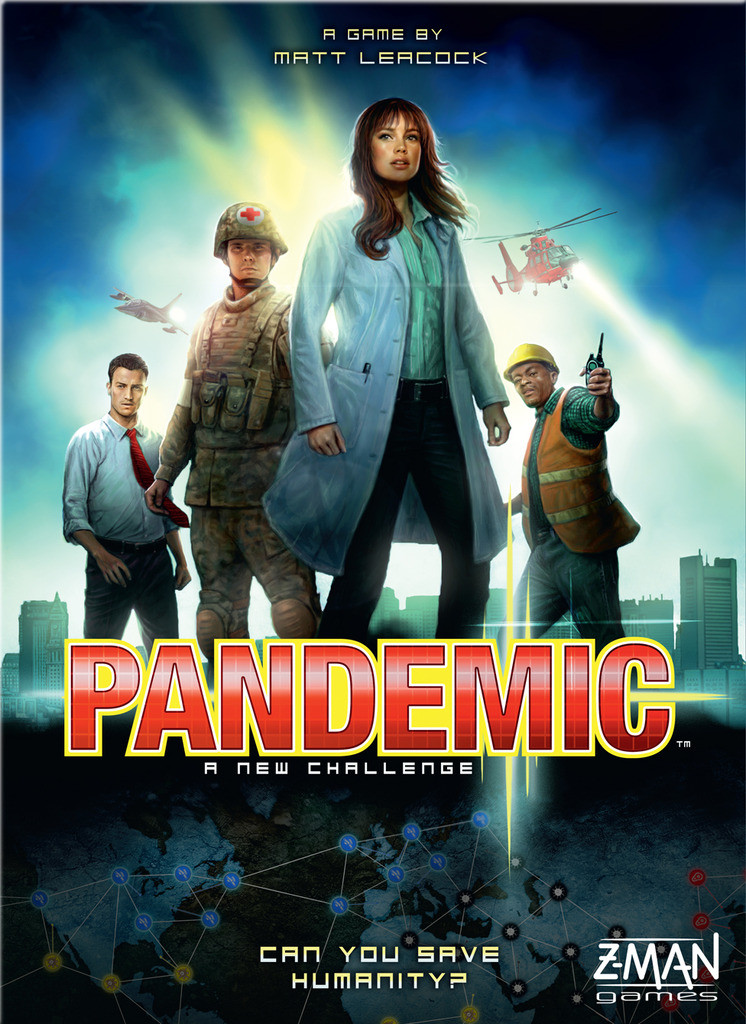
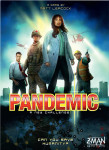
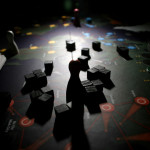
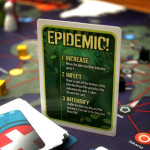

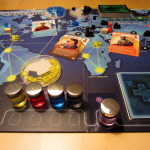
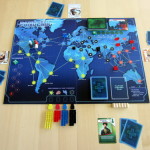
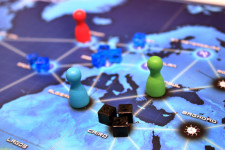
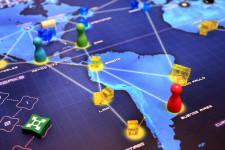


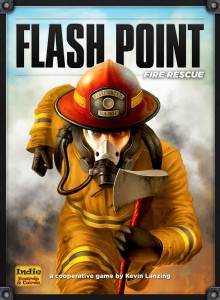
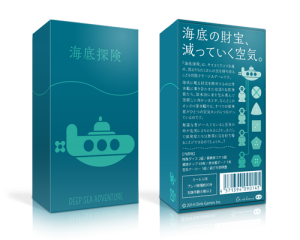

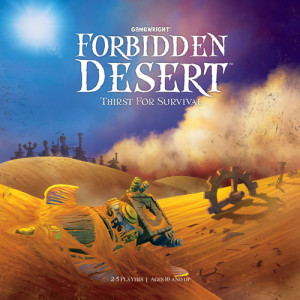
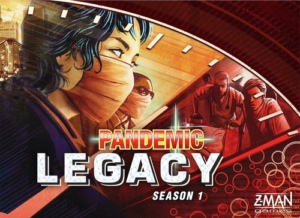
Sam says
Pandemic, like most co-operative games, does have the inherent possibility of an 'alpha' player taking over and telling everyone what they should do - but overcoming or avoiding that is really down to the group. And because it errs toward an all-ages adventure rather than intense gaming enthusiasts, hopefully it shouldn't be an issue. I regularly play with people who like to compete with each other, so we don't see many co-operative games on the table. But for the right group it's a really wonderful game, fast-moving but seeded with mounting pressure and tension.